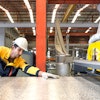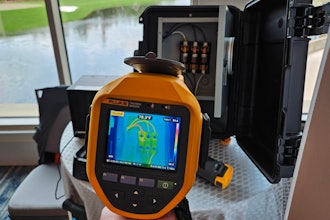The digitization of manufacturing through advancements such as the Industrial Internet of Things and Industry 4.0 has radically changed production. In a Pricewaterhouse Coopers (PwC) report 70 percent of manufacturers said they expect to significantly advance their digitization efforts by 2020. For industry, that means great gains in productivity and efficiency, and for consumers, the potential of significant savings. While some argue that these advancements in automation will do away with jobs, and in some ways that’s true, they will also give life to millions of highly skilled, good paying jobs, changing the face of manufacturing and the workforce of the future.
New Skills for a New Era
Understanding why — and how — training needs to change, means looking at how the evolution of advanced manufacturing has changed what employers need from their workforce. A report from General Electric predicts there will be 9 million new positions in advanced manufacturing by 2022, and many of these new jobs will require skills not traditionally associated with industry.
As production lines become “smarter” — collecting data and using that data to change processes and create efficiencies — and more flexible, workers will be expected to adapt in the same way. Some of the biggest changes include:
- Robots and machines will become less like equipment and more like co-workers, meaning workers will need to collaborate and interact with robots and other sophisticated technology in a highly skilled manner;
- Production processes will become more open-ended, the ability to move machines around to suit the manufacturer’s processes or fill-in for other broken equipment, workers will need to exercise the same flexibility understanding a variety of machines instead of just one;
- Beyond mechanical and electrical knowledge, in the future workers will need to have IT-based skills and knowledge to understand how to use, troubleshoot, and fix equipment that is connected online.
A Shift in Practice and Mindset
As jobs in manufacturing require more advanced skills such as resourcefulness, adaptability, and problem-solving and the equipment itself advances as well, how employers train and think of training also needs to evolve. The technical knowledge that has been a focus of training and education programs in the past will continue to be important, but simulations that focus on doing, analyzing, and optimizing real factory floor situations are needed in increasing doses. Similarly, in the fourth industrial revolution short term trainings (less than a year) and those that are focused on training on one piece of equipment or one part of the production line will train workers for smaller and smaller slices of available jobs.
The New Rules for Manufacturing Training
These changes in training will require new approaches from colleges, universities and other training organizations. They will also open the opportunity for new kinds of partnerships between industry employers and those creating and leading training programs.
Here are some ideas to change today’s training for tomorrow’s IIOT and Industry 4.0 jobs:
Develop digital and lifelong learning cultures. The changes made by IIOT and Industry 4.0 are not the end. As with everything in the world, the pace of change in industry is increasing. Just as importantly as learning the new skills needed for jobs today, workers need to develop a new way of thinking, one that emphasizes constant learning.
Invest in apprenticeships. In the past decade there has been more and more talk about adopting German-style apprenticeships in the U.S. There are of course great differences between the two countries and the German system can’t simply be copied here. But, the idea of creating more formal ties between where employees are being trained and the employers who will hire them will be more critical as Industry 4.0 grows. Apprenticeships provide the opportunity for new workers to put the ideas, theories, and lessons they have been learning in the classroom to practical use and be trained not only on a company’s equipment but in a company’s culture.
Build simulated smart factories in the classroom. An adaptation of the apprenticeship idea, and one that is potentially less costly or involved, is instead of taking students to the factory bringing the factory to students. Recent developments in technology have made it possible to purchase equipment that simulates Industry 4.0 equipment. Bringing these machines into the classroom will give students the opportunities to learn the new skills required of them.
Emphasize skills such as creativity, problem-solving, and critical thinking. Knowing how to make a machine run or the steps in the production process are no longer enough. Today’s and tomorrow’s jobs require individuals who can think on their feet, be quick to adapt, and imagine new ways to solve challenges. The best employees will understand that it is much more important to know how to problem-solve and think critically, rather than simply knowing the answer.
Invest in STEM education early. It is never too early to start training for these kinds of careers and opening young students’ eyes to the possibilities of a career in manufacturing. Talking about the importance of manufacturing, the innovations happening in industry, and how what they are seeing in their everyday world connects to particular careers will help cultivate the skills manufacturing needs long before they are needed.
Changes in manufacturing will continue, and in some cases take place at faster rates. To fully realize the benefits of Industry 4.0, employers need a trained and educated workforce. Paying attention to the list above will help ensure that manufacturing continues to be a viable career path for talented individuals and that production is effective and efficient.
Thomas Lichtenberger is the President of Festo Didactic North America.























